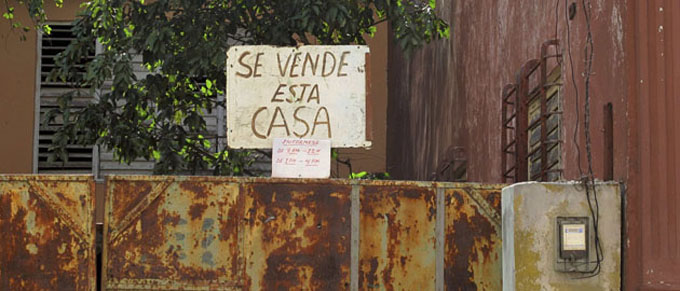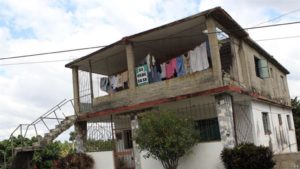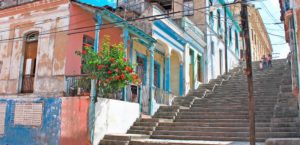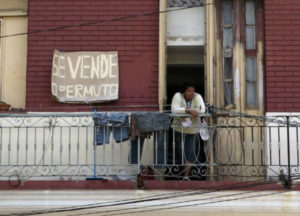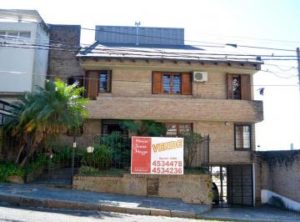Who can buy?
To “legalize” the purchase and sale of houses in Cuba, it was necessary to amend Law 65 of December 23, 1988. The State Council changed Article 2 of this regulation to authorize the purchase and sale of houses on the island to Cubans with domicile. in Cuban territory and foreigners permanent residents in the country.
How many properties can you have?
The Cuban government authorizes two properties in Cuba. One, permanent residence, and another, summer vacation on the beach or in the countryside. No one can have more than two homes.
Swaps
The swaps between individuals must be formalized before the notary of the municipality where one of the houses to be exchanged is located, provided that the houses are registered in the Property Registry.
It is legal to compensate an owner with money in the case of home exchanges. The economic compensation (the Cubans call it “the return”) must be recorded in the deeds of the houses. This payment is made at the moment of formalizing the swap, by means of checks issued by the National Bank of Cuba.
Donation
The new modification of the Housing Law of Cuba of 2011 allows to formalize the donations of homes before a notary in the municipality where the dwelling is located and as in the case of the swap, the house must also be registered in the Land Registry .
Buy and sell
This type of transactions, which are advertised on websites dedicated to the sale of homes in Cuba such as Islasi, are formalized in the Notary where the house for sale is located. The price is agreed by the parties, there are no limits or minimums. You have to pay the day you are going to sign with checks issued by the National Bank of Cuba.
The buyer must declare, under oath, that he owns a single permanent home. You must also show that the funds you are going to buy the house with exist in the bank.
Requirements for the seller
The seller must meet two requirements: have the house registered in the Property Registry and prove that he has paid the fees corresponding to the transfer of the property.
Both the purchase and the donation will be canceled if the person who sells or donates remains unprotected.
Confiscation
An owner who wants to leave the country can legally sell his home before leaving, otherwise the confiscation of the house by the State is maintained, but he will have to assign the property to someone who has the right to it. Those who claim it are obliged to settle the debt that remains pending on the home.
The co-owners, spouses, children, descendants, parents, grandparents, nephews, uncles, cousins or persons who have resided in the home for five years with the consent of the owner are entitled to the house.
REQUISITOS ACTUALES A LOS INTERESADOS EN LA COMPRA-VENTA DE PROPIEDADES EN CUBA.
¿Quién puede comprar?
Para “legalizar” la compra- venta de casas en Cuba fue necesario modificar la Ley 65 del 23 de diciembre de 1988. El Consejo de Estado cambió el artículo 2 de esta normativa para autorizar a comprar y vender casas en la Isla a cubanos con domicilio en territorio cubano y extranjeros residentes permanentes en el país.
¿Cuántas propiedades se pueden tener?
El Gobierno cubano autoriza a tener dos propiedades en Cuba. Una, la residencia permanente, y otra, de veraneo en la playa o en el campo. Nadie podrá tener más de dos viviendas.
Permutas
Las permutas entre particulares deberán formalizarse ante el notario del municipio donde esté ubicada una de las viviendas a intercambiar, siempre que las casas estén inscritas en el Registro de la Propiedad.
Es legal compensar con dinero a un propietario en el caso de intercambios de casas. La compensación económica (los cubanos le llaman “el vuelto”) debe constar en las escrituras de las casas. Este pago se hace en el momento de formalizar la permuta, mediante cheques emitidos por el Banco Nacional de Cuba.
Donación
La nueva modificación de la Ley de Vivienda de Cuba del año 2011 permite formalizar las donaciones de viviendas ante notario en el municipio donde se encuentra la vivienda y como en el caso de la permuta, la casa también debe estar inscrita en el Registro de la Propiedad.
Compraventa
Este tipo de transacciones, que se anuncian en webs dedicadas a la compraventa de viviendas en Cuba como Islasi, se formalizan en la Notaría donde esté ubicada la vivienda en venta. El precio es el que acuerden las partes, no hay topes ni mínimos. Hay que pagar el día que se va a firmar con cheques emitidos por el Banco Nacional de Cuba.
El comprador deberá declarar, bajo juramento, que es propietario de una sola vivienda permanente. También deberá demostrar que los fondos con que va a comprar la casa existen en el banco.
Requisitos para el vendedor
El vendedor deberá cumplir dos requisitos: tener la casa inscrita en el Registro de la Propiedad y acreditar que ha pagado las cuotas correspondientes al traspaso del inmueble.
Tanto la compraventa como la donación quedarán anuladas si la persona que vende o dona se queda desprotegida.
Confiscación
Un propietario que quiera abandonar el país podrá vender legalmente su vivienda antes de irse, de lo contrario se mantiene la confiscación de la casa por parte del Estado, pero éste tendrá que asignarle el inmueble a alguna persona que tenga derecho a ella. Quienes se la adjudiquen están obligados a liquidar la deuda que quede pendiente de la vivienda.
Tienen derecho a la casa los copropietarios, cónyuges, hijos, descendientes, padres, abuelos, sobrinos, tíos, primos o personas que hayan residido en la vivienda durante cinco años con el consentimiento del propietario.
Agencies/CiberCuba/Internet Photos/Arnoldo Varona/TheCubanHistory.com
THE CUBAN HISTORY, HOLLYWOOD.



